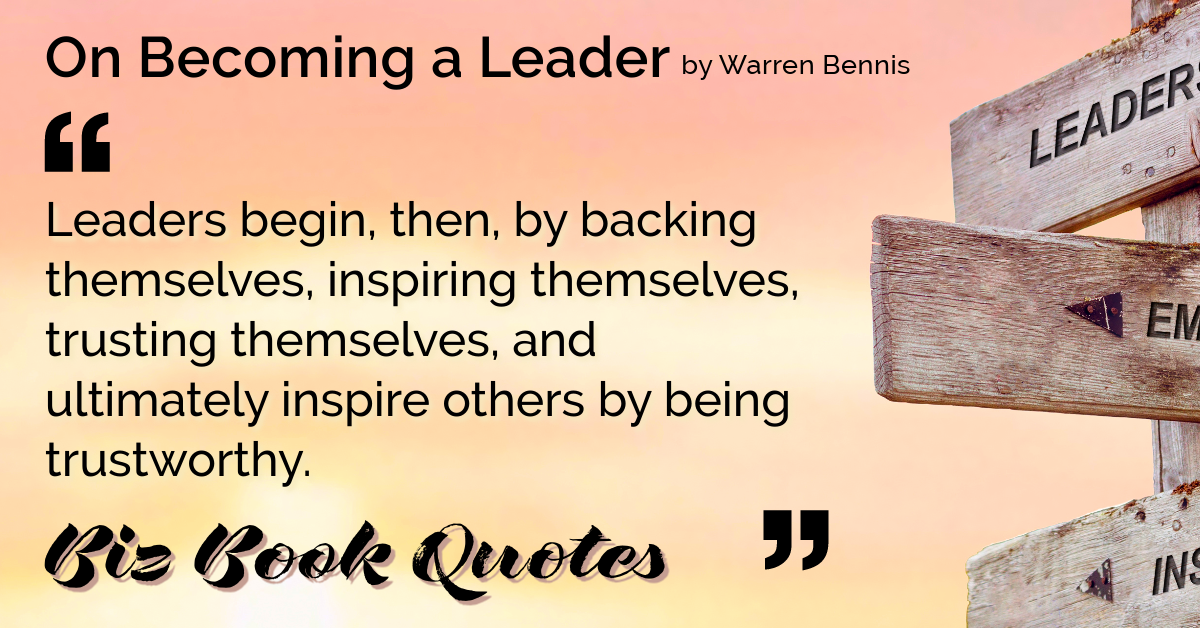 |
Leaders begin, then, by backing themselves, inspiring themselves, trusting themselves, and ultimately inspire others by being trustworthy.
|
060 |
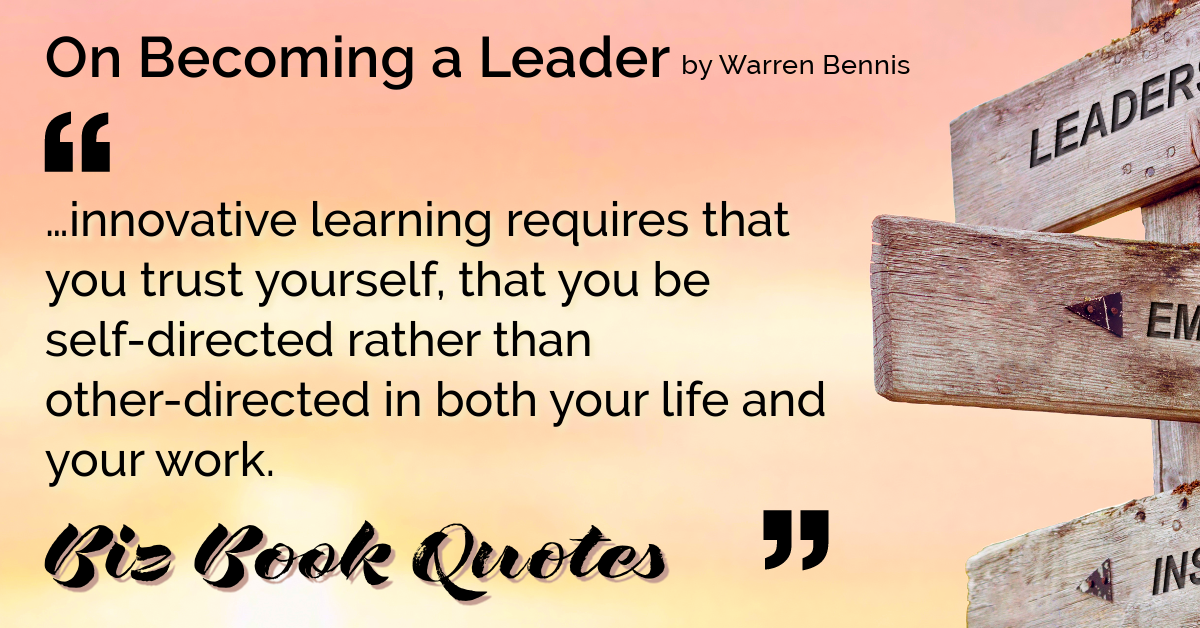 |
…innovative learning requires that you trust yourself, that you be self-directed rather than other-directed in both your life and your work.
|
071 |
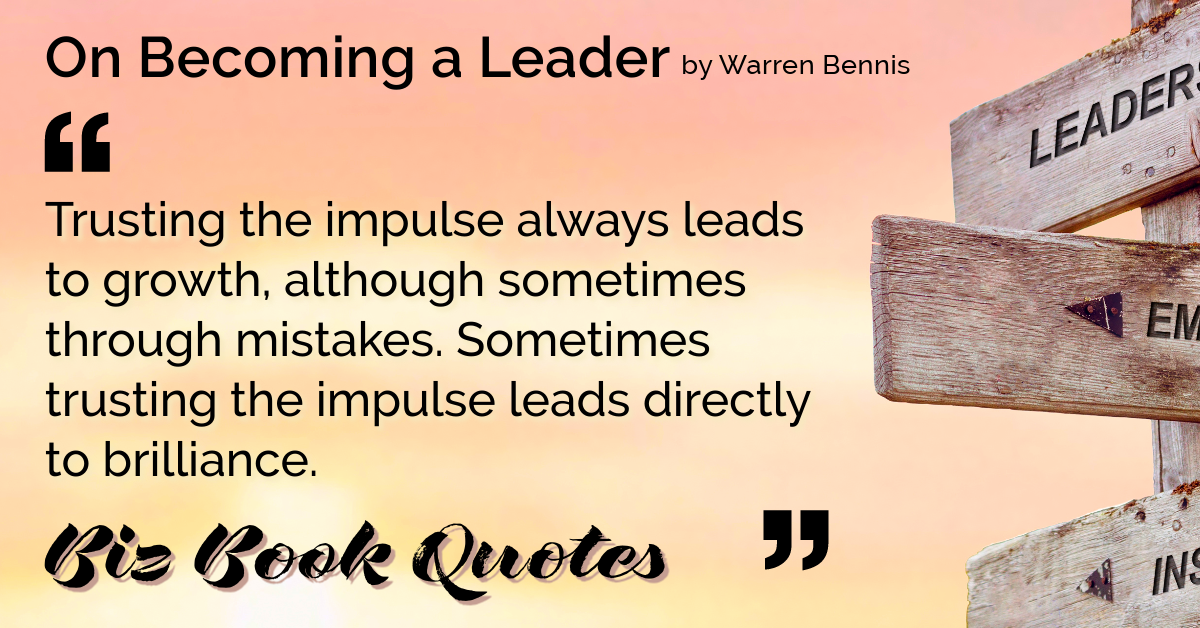 |
Trusting the impulse always leads to growth, although sometimes through mistakes. Sometimes trusting the impulse leads directly to brilliance.
|
091 |
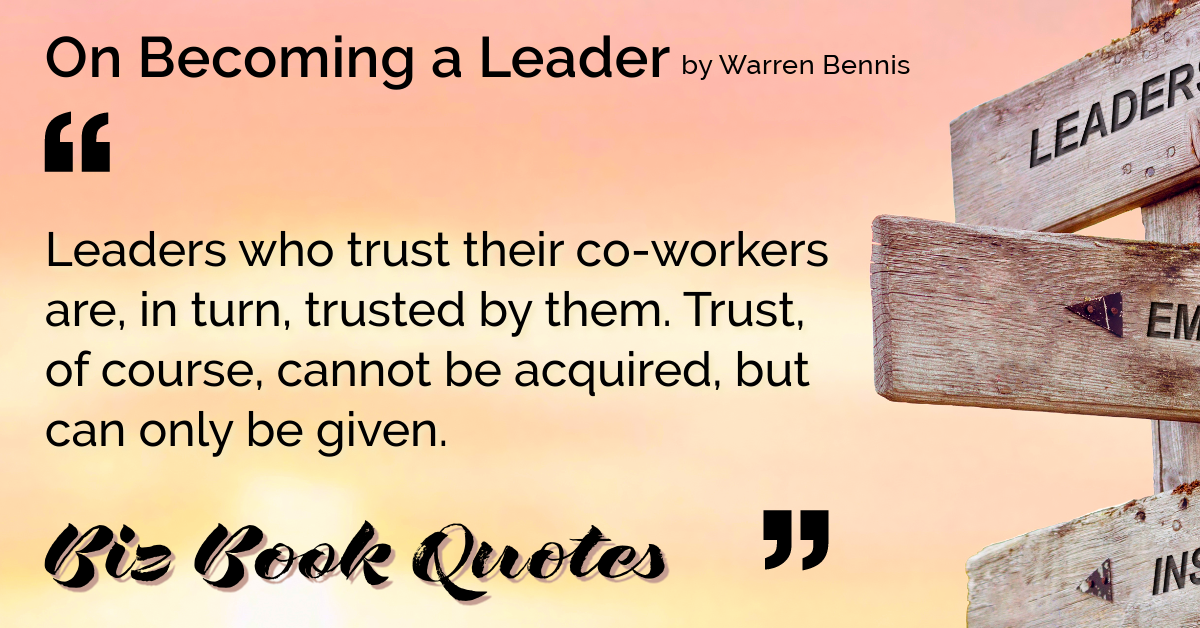 |
Leaders who trust their co-workers are, in turn, trusted by them. Trust, of course, cannot be acquired, but can only be given.
|
133 |
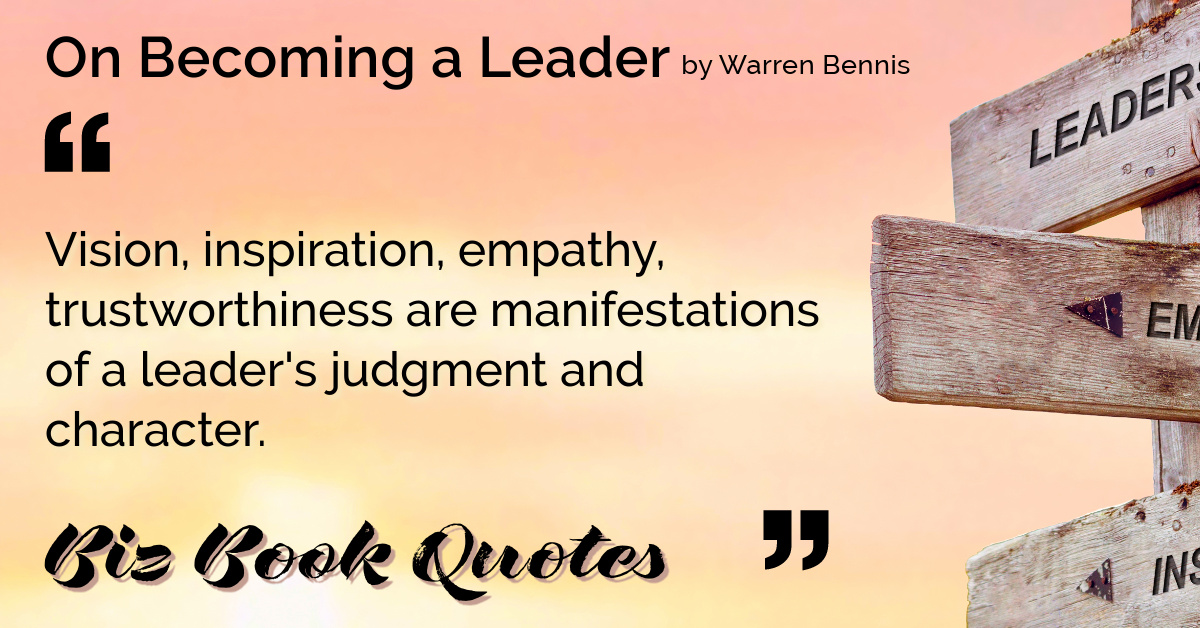 |
Vision, inspiration, empathy, trustworthiness are manifestations of a leader’s judgment and character.
|
133 |
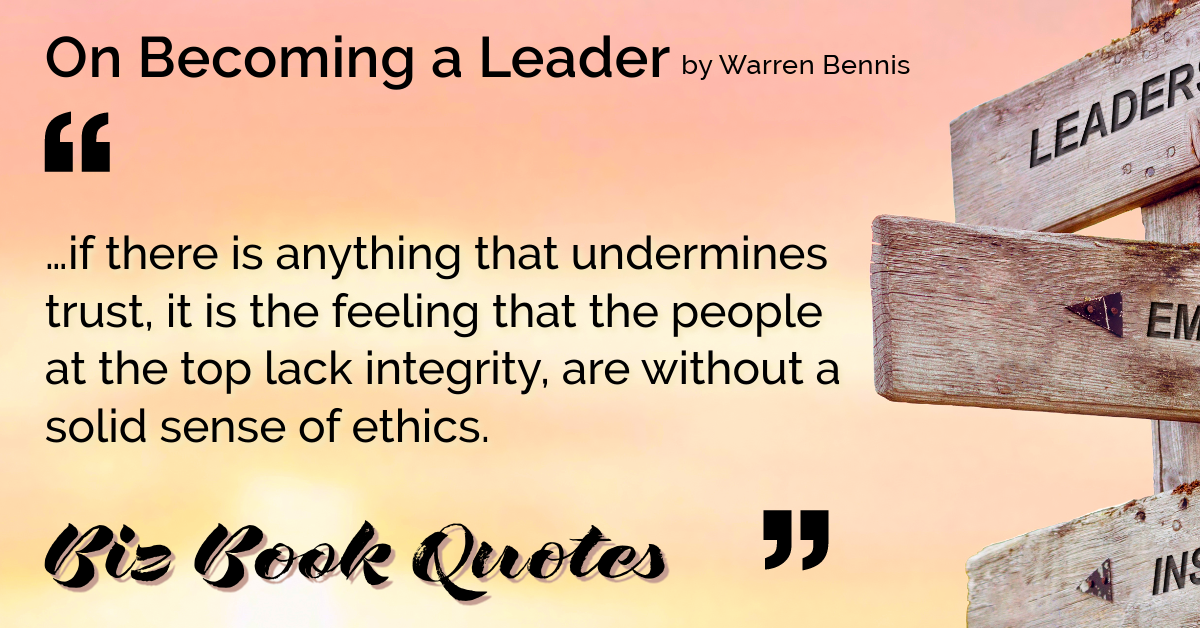 |
…if there is anything that undermines trust, it is the feeling that the people at the top lack integrity, are without a solid sense of ethics.
|
156 |
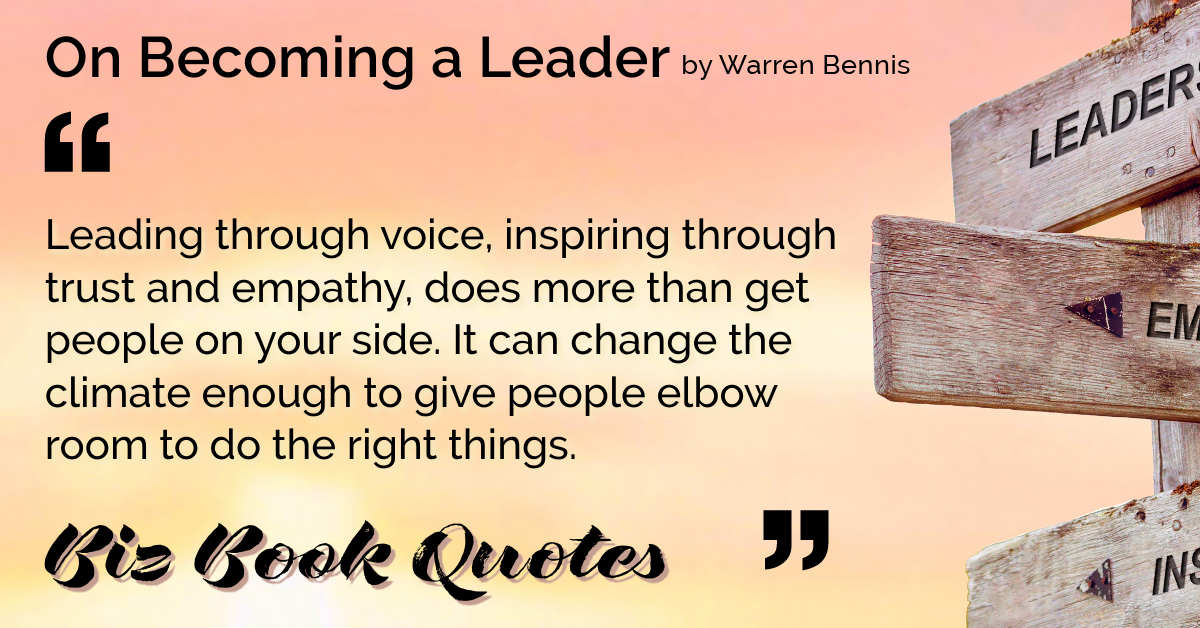 |
Leading through voice, inspiring through trust and empathy, does more than get people on your side. It can change the climate enough to give people elbow room to do the right things.
|
159 |
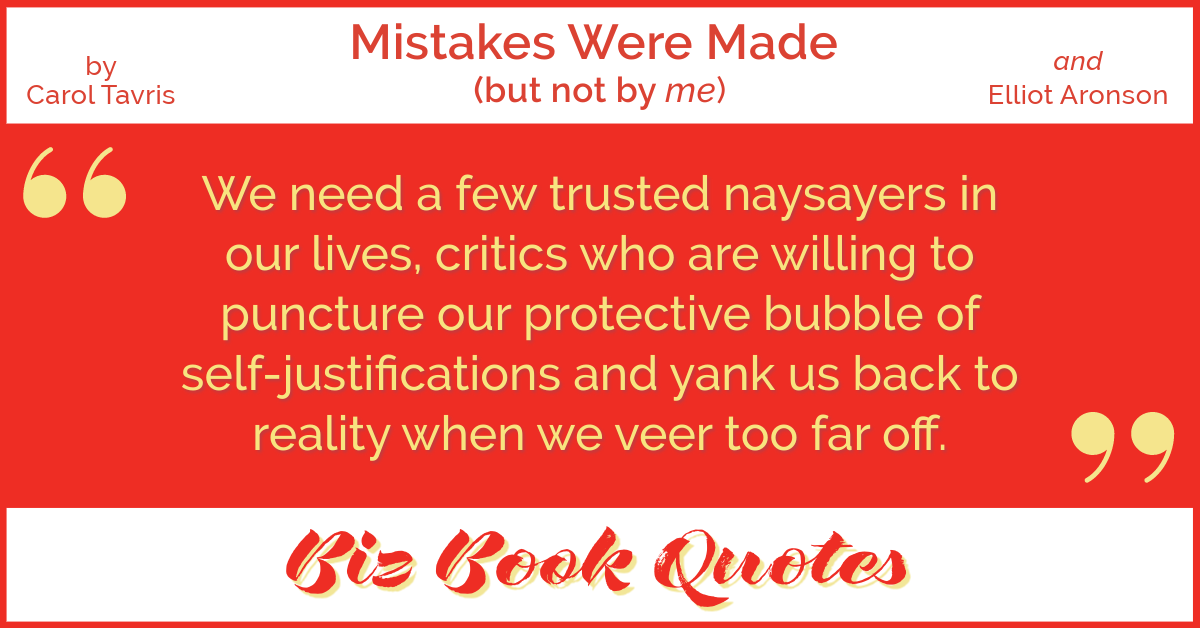 |
We need a few trusted naysayers in our lives, critics who are willing to puncture our protective bubble of self-justifications and yank us back to reality when we veer too far off.
|
092 |
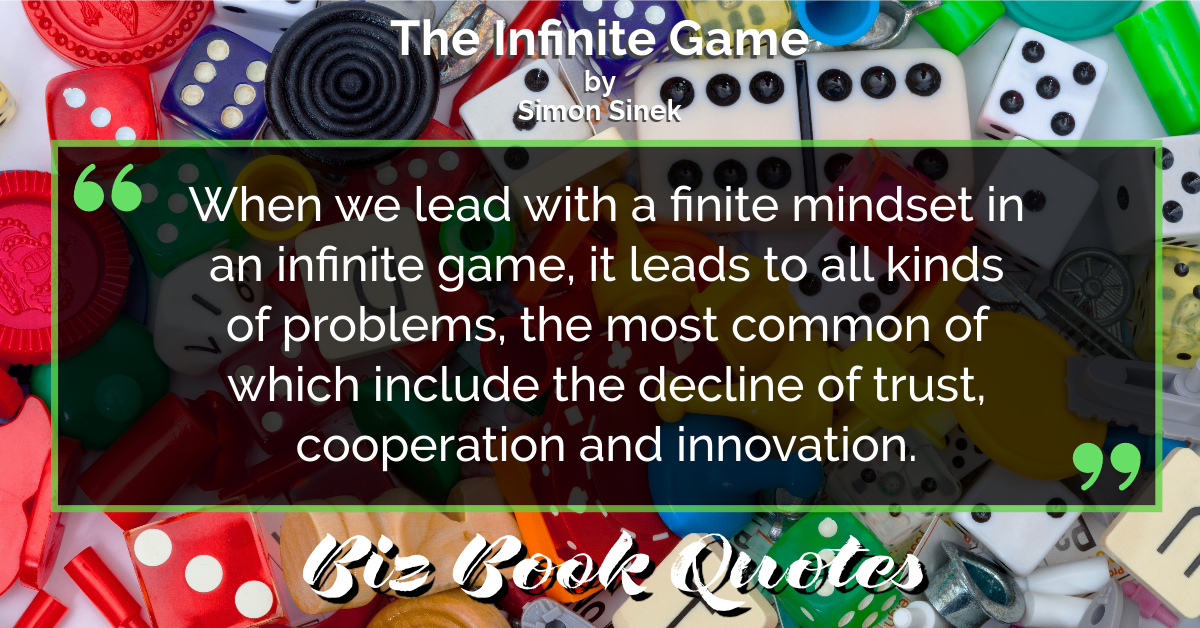 |
When we lead with a finite mindset in an infinite game, it leads to all kinds of problems, the most common of which include the decline of trust, cooperation and innovation.
|
005 |
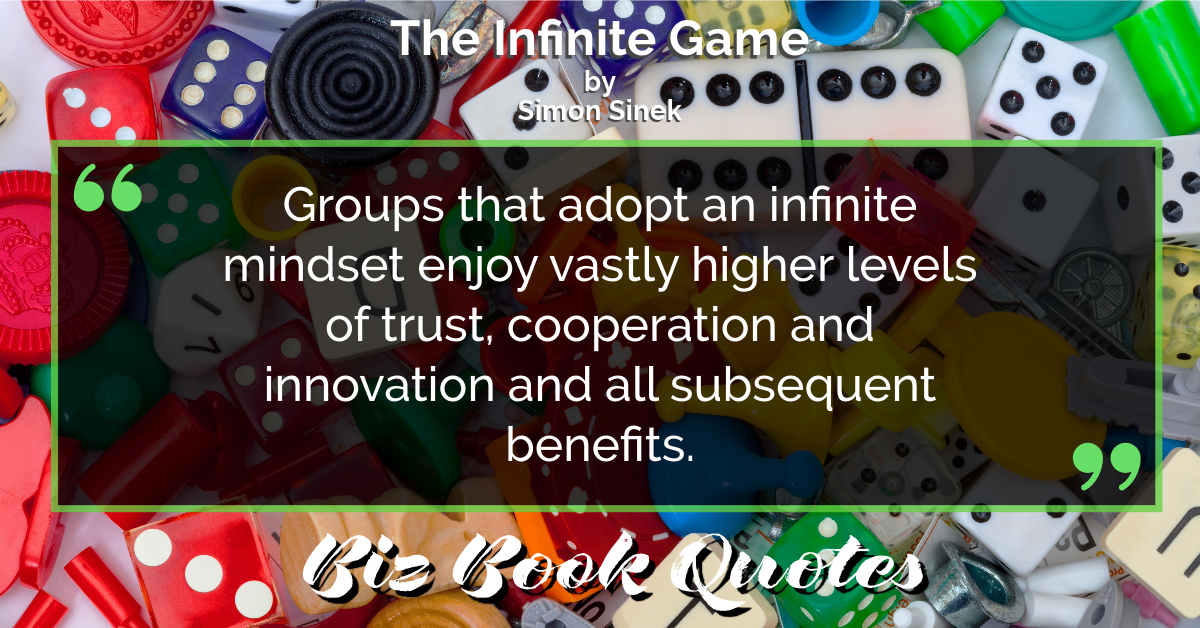 |
Groups that adopt an infinite mindset enjoy vastly higher levels of trust, cooperation and innovation and all subsequent benefits.
|
005 |